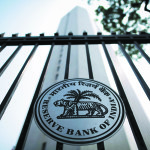Enhance Your Word Power
Definition of Bank
To put it in simple terms, Banking can be defined as the business activity of accepting and safeguarding money owned by other individuals and entities, and then lending out this money in order to earn a profit. But the role of banking has expanded enormously in the modern times. Banks today issue credit and debit cards, safe keep valuable items of individuals, provide lockers, provide cash on need through automated teller machines (ATM), electronically transfer money to wherever it is needed and help people do business across borders.
More than money, Banks run on trust of the people. When you trust that your money will be safe and would be returned to you when you want it, you deposit your money there.
(وہ مالی اِدارہ جو لوگوں کی رکھی ہوئی رقم کی سرمایہ کاری کرتا ہے، قرضے جاری کرتا ہے، سودی قرضے دیتا ہے،اور زرِ مبادلہ وغیرہ کا کاروبار کرتا ہے)
Cheque: A printed instrument issued by a bank and signed by the depositor to withdraw cash or transfer money to others. (چیک)
Demand Draft: An instrument issued against payment by a bank to a client (drawer), directing another bank (drawee) or one of its own branches to pay a certain sum to the specified party (payee). (ڈیمانڈ ڈرافٹ)
Interest: A fee paid for the use of another party’s money. To the borrower it is the cost of renting money, to the lender the income from lending it. It also stands for giving someone a legal claim on property one owns in exchange for money that he will pay back over a period of time. (سود)
Savings Account: An account where money is deposited by an individual for limited transaction. Bank pays simple interest on the deposited money. (بچت اکاؤنٹ)
Current Account: An account where unlimited transactions can be done. It bears no interest.
(چالُو اکاؤنٹ)
Credit: Entry of a sum received in the bank account.
(جمع شدہ رقم کا اندراج)
Debit: Entry of a sum taken out from the bank account.
(نکالی ہوئی رقم کا اندراج)
Mortgage: A legal agreement in which a person borrows money to against a property (such as a house, a plot of land) and pays back the money over a period of years.
(قرض کی رقم پر رہن شدہ املاک).
Foreign Exchange: Any currency other than the local currency which is used in settling international transactions.
(زرِمبادلہ:دیگر ممالک کی کرنسی)
Non-Performing Assets (NPA): is a credit facility in respect of which the interest and/or installment of principal has remained ‘past due’ for a specified period of time. In simple terms, an asset is tagged as non-performing when it ceases to generate income for the lender.
(وہ اِملاک جس پر لیا گیا قرض باقی ہو)
Overdraft: An overdraft allows a bank account holder to continue withdrawing money even if the account has no funds in it.
(پیش وصولی،بنک میں جمع شدہ رقم سے زائد نکالی ہوئی رقم)
Cooperative Bank: A bank run by some occupational groups such as farmers, coffee growers, poultry businessmen etc.
(امدادِ باہمی بنک)
Scheduled Bank: Scheduled Banks in India constitute those banks which have been included in the Second Schedule of Reserve Bank of India(RBI) Act, 1934. RBI in turn includes only those banks in this schedule which satisfy the criteria laid down vide section 42 (6) (a) of the Act.
(شیڈولڈ بنک)
Nationalised Bank: In 1969 the Indian government nationalised 14 major private banks. In 1980, six more private banks were added to the list. These nationalized banks are the majority of lenders in the Indian economy. They dominate the banking sector because of their large size and widespread networks..
(قومیائے گیے بنک)
Reserve Bank of India: Every country has a central banking institution which controls the monetary policy of the country. Reserve Bank of India is India’s central bank which regulates the rupee economy and plays the most crucial role in the development of Indian economy. It lays down rules and regulation which need to be adhered to by all banks in the country. It issues currency notes and coins. It protects the interests of depositors and works as a watchdog over the entire banking activity.
(ہندوستان کا مرکزی بنک جو کرنسی جاری کرتا ہے)
Islamic Banking: Islam prohibits ‘Riba’ (which literally means ‘excess’, ‘addition’ or modern day interest and usury). Islamic banking is based on avoiding interest, although differences exist among theologians with regard to ‘fees for loan’ on currency notes. Moreover, the banking and interest rates are strictly regulated today. It is argued that it was prohibited to charge excess on gold dinar in olden times but it does not apply to currency notes today. Islamic economists plead for linking businesses with loans and profit and loss sharing (PLS).
(اِسلام نے ربا کی ممانعت کی ہے۔لہٰذا،موجودہ دور کی اِسلامک بنکنگ میں سود کے بجائے تجارت میں شرکت کا عنصر شامل کیا گیا ہے۔ اِسلامی بنک شراب،سور کا گوشت جیسی تجارتوں کی ممانعت کرتے ہیں)
(Note: Please do not consider this definition final and read further on Wikipedia and other sites.)



COMMENTS